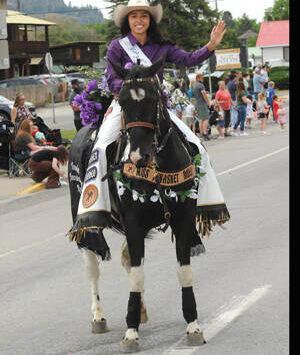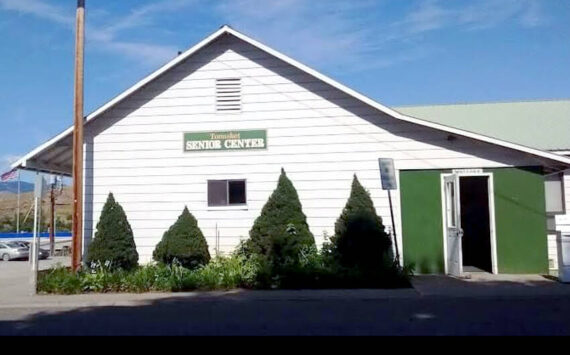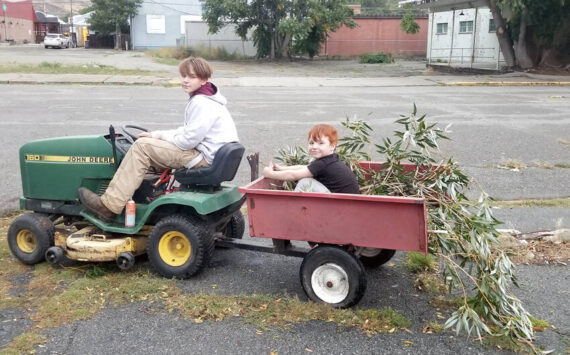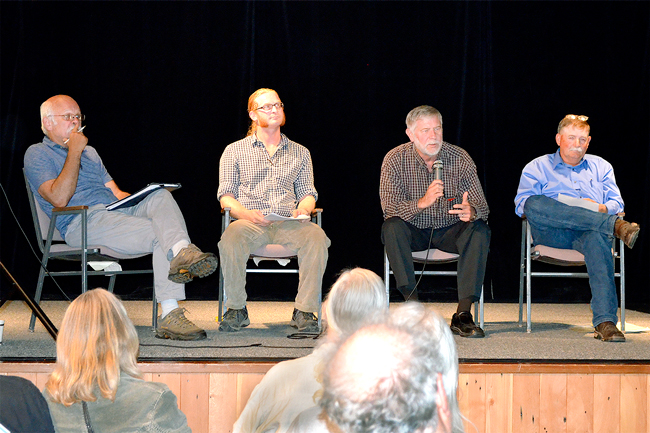
A large turnout of voters with lots of pertinent questions attended an Okanogan County PUD commissioner candidate forum held July 20 at the Community Cultural Center in Tonasket, leaving candidates with the impression the public is ready for commissioners to hear their views.
“I wish we had this kind of turnout at all our meetings,” said PUD Commissioner Scott Vejraska. “This is excellent. At least two of us on the commission like to hear from everyone.”
Three candidates are vying for Commissioner Ernest Bolz’s position, as Bolz is not running for re election. The term is for six years with an annual salary of $27,420.
George Thornton moderated the forum, with the candidates given five minutes to introduce themselves before being asked questions they had been given ahead of time as well as queries from the audience. Thornton said he invited Vjraska to attend to help explain different issues that might come up.
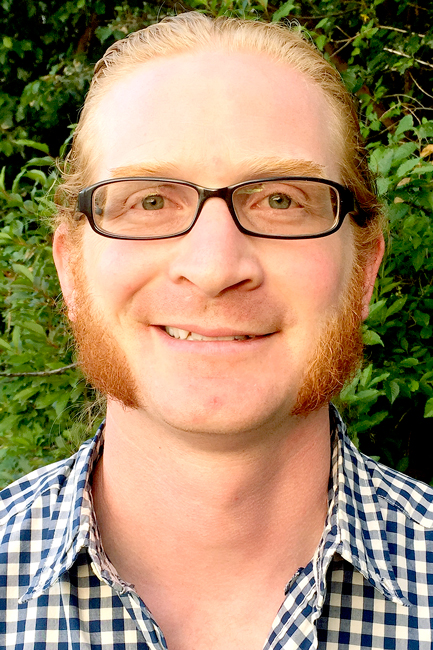
Aaron Kester introduced himself as someone who was born and raised in Missoula Montana who came to Tonasket when his father bought Lee Franks Mercantile. Kester worked at the “family store” during high school before going to Pullman for a business degree in entrepreneurship. Kester said he came back to Tonasket to help rebuild the store after a fire before moving to the Seattle area for three years where he worked at Boening as a Methods Process Analyst for the 747 production line. Kester works full time at Lee Franks Mercantile and is the vice president of the Tonasket Chamber of Commerce, president of Tonasket Kiwanis, on the board of the Tonasket Natural Foods Co-op and is a civil service commissioner for the Tonasket Police Department.
“I want to help with this community, as much as I can, but I want to still be involved with the store,” said Kester. “I see some of the issues with the PUD and feel I could focus more on one issue rather than as a county commissioner.”
John Graham stood up to introduce himself and his wife Polly of 40 years sitting in the audience, stating he learned at Communications school at the University of Washington that “people can hear you better if you stand up.” Graham said he and his wife moved to Tonasket two years ago after his daughter Heather called and said she and her husband Salem Straub were starting a family, asking, “Can you come and help?”
“Now I want to talk about what her family will face in the future in this county,” said Graham.
Graham said his experience working with public utility districts goes back to 1967.
“I have experience working with energy efficiency work starting in 1978, working with solar, wind and other renewables. I have lots of communications and conservation experience, and I like to work with the idea of consensus. We can do better if we agree as a people to agree,” said Graham. “If you elect me, I will ask, ‘Can we communicate better?’ The time the PUD meets is a tough time for people to make, so I would work on scheduling some meetings when more people can come.”
Graham said he attended a webinar earlier that day, and was impressed with the ability the technology gave to people to pick up meetings in session and ask questions. “I would like to adapt that technology for the PUD so people who can’t make it to the meetings would feel more engaged,” said Graham.
Jerry Asmussen said he has always believed that “those who show up help shape the way the community is going to be.
“I have been a school board member for 17 years, and for most of those years I served as chairman of the board,” said Asmussen, who is also involved with the Okanogan Conservation District and has served for more than 20 years on the Hamilton Youth Foundation Board.
“I am a rancher and an auctioneer, which is probably how most of you know me,” said Asmussen. “And with involvement in everything, I have a lot of experience with budgets and negotiating with the chief executive. We are all in this to make this a better place for our kids and the generations that came after us.”
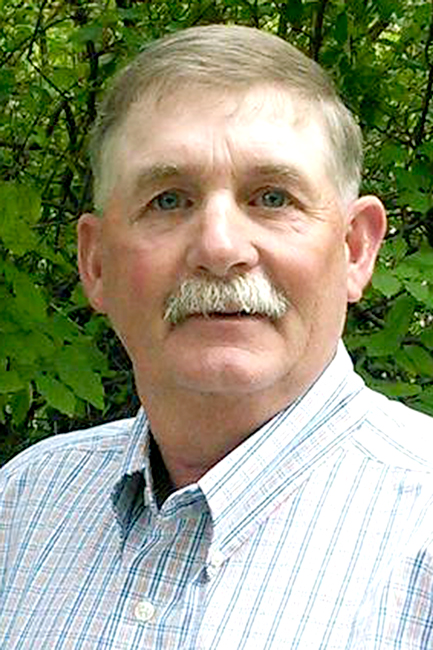
Asmussen said he started watching the PUD commissioners “when Ernie Bolz was running unopposed.
“I don’t like to see people run unopposed, I like to see people be challenged,” said Asmussen, adding that he felt the biggest job of the PUD commissioners was to be “responsible for cost analysis of all the decisions we make, like to build out so we can stand with our legacy. It needs to be there for future generations.”
Responding to a question about the difference between a PUD commissioner’s role and a county commissioner’s role, Kester said, “The Okanogan County Commissioners deal with a wide variety of issues all throughout the county. The PUD issues are power, power generation, contracts and new broadband service. And there is just one manger of the PUD.”
Graham said the biggest difference between the two was the scale of things.
“The PUD turns over $50 million a year, and it’s something that touches all of our lives,” said Graham. “The scale of this was a revelation to me.”
Asmussen said the PUD has the largest public budget in the county.
“The PUD governs more through policy, and has a narrower range of topics,” said Asmussen. “PUD commissioners are not pushed and pulled and harangued to the degree county commissioners are.”
“Last year’s budget was $71 million, and we currently added $2 million to the reserve fund,” said Vjeraska.
Candidates were next asked what they would do to encourage diversification in a PUD that uses hydro electric, some wind and a little nuclear to produce power.
“That is a key question for the future. Concern with dams are increasing all the time, with a judge in Oregon recently suggesting taking three dams out of the lower Columbia River because the salmon recovery efforts have not resulted in saving the species,” said Graham.
“Alternative energy, I have enjoyed the time we have lived in, with rapidly changing technology,” said Assmussen. “Our role is to support diversification to add to our power mix. Today at Cornell University they are testing a new pipe joint to withstand earthquake damage. Engineers all over the world are working to make power more feasible.”
“Re powering this dam has it’s risks,” said Kester. “It is an old dam, and eventually the concrete will fail. I would like to see other sources explored such as a natural gas line and fields of solar panels on top of mountains. A field of solar panels on 50 acres could put out more than that dam.”
Candidates were next asked if people generating solar power should be allowed to feed that power back into the power grid.
“I think solar generation is a great thing, however it has to be monitored. There have been cases where people thought the line was dead and began working on it, but solar energy was feeding back into it and it damaged the line. We would need a contract to avoid that,” said Graham.
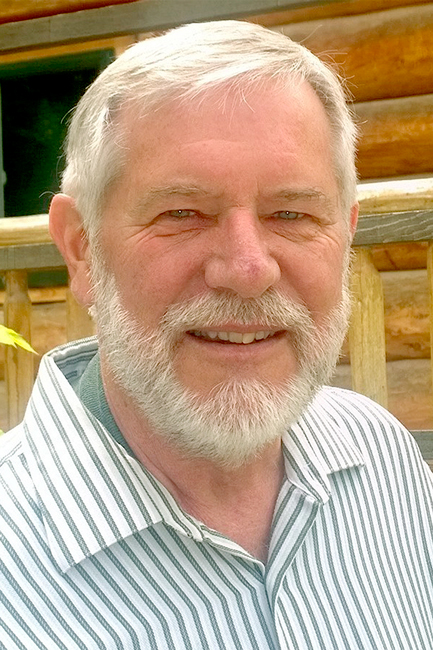
“The PUD has a policy to buy power back, and there is a discussion going on about the rate. People should also have a battery array to use their own power on site,” said Asmussen.
“What would we do in a catastrophe to supplement our power? Solar would work, but I have heard there is and isn’t a system in place for that, so I am trying to educate myself on the history of the PUD, but I don’t have enough time to answer all the questions on that,” said Kester.
“PUD commissioners have essentially one employee, the general manager, and he had better be good,” said Thornton. “How do you judge if the general manager is serving you well?”
“I would judge his performance on how efficiently he is running the PUD, and is it making or losing money, and if we have a big cushion,” said Kester. “I would like to see the jobs outsourced to be brought back. I can understand PUD employees not cutting tress, that is better left to the loggers, but I would like to see if they can be trained in pole testing.”
“The commissioners’ main job is evaluating the general manager, and his key responsibility as we oversee him is, are the people who report to him doing a good job? A key indicator is how people are being treated in an environment where we are seeking consensus,” said Graham.
“The budget is the largest policy issue, and how well the manger adheres to guidelines,” said Asmussen. “Also the customer service grade and how well he follows policy set by the board. How are his recommended allocations meeting the needs of the county?”
Candidates were next asked what they would do to increase openness and transparency in the PUD.
“I spent 10 years in utility and media communications,” said Graham. “I would emphasize communication with the media. We could inform them when something important came up we thought they should be aware of. In my experience, we would bring the news media in for briefing sessions, and I found that really helpful to let the media know when big issues are coming up.”
“The key is communication, and the information available on the PUD website is less than stellar,” said Asmussen. “We also send everyone a bill every month, and we could send information through that.”
“With the PUD website already in place, rather than just minutes being posted, we could videotape the conference and put that on the website,” said Kester. “That way people could see everything going on, and if they don’t like what’s going on, they could come to the next meeting.”
Thornton next brought up climate change and unpredictable weather patterns.
“A lot of people are saying, look at the water shortages, which makes power production in the Columbia River unstable. What could commissioners do to protect ratepayers?”
“As with any larger organization, accuracy of long range planning is the key, and planning for eventualities. If there is too much of a shortage of water, it can only support so many people, and we will have a lot of problems,” said Asmussen.
“Seeing the potential of energy declining, each one of us has to learn to be more self reliant, and to make our businesses and homes more efficient,” said Graham. “Put solar panels on roofs. We could look into people coming together as a community to not have to bear the expense of a system all on their own on their house.”
“Being more efficient is key, and I would suggest getting into solar bit by bit, a little at a time. I use a string of LED lights we sold at Christmastime at night, and that one string lights up my kitchen and my living room. And it’s not plugged into a wall, it has it’s own little system so when the power goes out I have lights,” said Kester. “Just do a little piece of it at a time.”
“The PUD needs to have a guaranteed income and needs to balance its base rate and Kwh hour cost to ensure enough income to meet it’s needs. If you raise the base rate it imposes a higher cost per Kwh on the low power user, leading to regressive cost structure. What might you suggest to share the burden that is not regressive on the small user?” asked Thornton.
“I don’t like paying that $35 per month and would like to cut down as much as I can, but even if you do it doesn’t cut down on cost much. But if Kwh charge went up it would help cut down on that base rate,” said Kester.
“It’s much like a teeter totter, it goes up and down. It costs a certain amount of money to read meters and do the other work to keep the PUD running. What I find with rate decreasing is you want a signal to the customer, but if we do a conservation measure, we would get a reward for a reduced rate of consumption,” said Graham.
“As we’ve seen in the retail power mix exchange, buying power at a different rate, we don’t have the large industrial customers like the refrigerated warehouses anymore that were using up the power, so the base rate had to go up. One has to follow the cash flow,” said Asmussen.
Thornton next asked candidates what they were doing to prepare themselves for the legal and regulatory framework of PUDs, created by state legislature years ago with a complex set of rules and regulations on how they operate.
“I’ve been watching issues up and down the neighboring PUDs,” said Asmussen. “Also through research, internet, talk with past and current commissioners and a lineman.”
“Regarding legal and regulatory work, I have a wide span of experience not indifferent to these issues. PUDs are a different kind of animal, and I have spent a lot of time working with utilities,” said Graham.
“To best understand legal and regulatory issues takes research, so I do as much as I can and talk to a wide variety of people on both sides of the issue,” said Kester.
The candidates were next asked about their methodology for resolving conflict, especially in public meetings attended by people with opposing views on controversial issues.
“With my experience on other boards, this is a common problem,” said Asmussen. “The best way to handle it is to listen to the people, but don’t be stampeded into listening to them; do your research ahead of time.”
“I believe in consensus. Let’s all agree to fight this thing through with a commitment to agree with each other,” said Graham.
“Coming to meetings with specific issues, you should try to resolve the issue beforehand, and educate both sides as to why you are making the decision you do,” said Kester.
Thornton discussed PUD commissioners having a lot of committees, consortiums and agencies to connect with, resulting in a least a week a month of travel out of the area.
“How do you see being able to adequately fulfill your responsibility given this heavy burden with a lot of travel?” asked Thornton.
“I have been involved with utilities since 1978, and have been attending a number of meetings. I am retired and do a lot of work out of my house, and I would enjoy that,” said Graham.
“I set my own hours, although sometimes the cows would disagree, but experience on several different boards has taught me to make it efficient. Go with a purpose in mind in order to really accomplish something,” said Asmussen.
“If I am in this position and gone more, I would have to juggle other board obligations,” said Kester. “My biggest concern would be that I would not be able to work full time at the store, but be more part time and not as tied to a schedule. But this would be my foremost priority.”
When an audience member asked about people being part of making a future for the PUD, Thornton assured her, “They heard that message big tonight.”
“I have a group of people that I talk with, and Steve Huston has a group of business people he talks to,” said Vjraska.
“If I were in this position I would make a big effort to expand that circle,” said Thornton. “A big message tonight is we need a community advisory board. If we had a forum where we could all exchange ideas, maybe it would be less of a dichotomy.”
The evening ended with the candidates thanking the public for their attendance.
“I want to thank everyone for coming out, and encourage them to stay involved and don’t get discouraged,” said Asmussen.
“This is a public utility district and you are the public,” said Graham. “Decide which one of us can best serve you. This is your utility, related to how you want it to be. Our obligation is to hear you out and put some of that together.”
“Our position is to represent the public, so we want to hear from everyone,” said Kester. “You can find me around town, call me or email me, but I prefer not to be contacted at the store,” said Kester. “I definitely want to represent the public.”
Ballots were mailed to voters last week for the primary election and must be returned to the Okanogan County Auditor’s office by Tuesday, Aug. 2.

